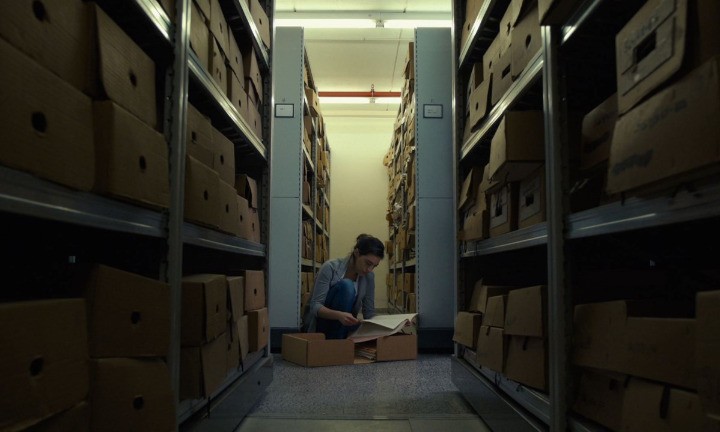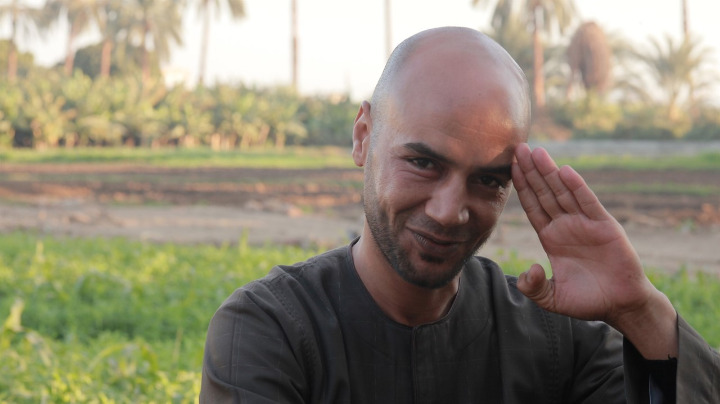The winner of the 2017 Corus-Hot Docs Forum Pitch Prize, Israeli director Michal Weits’ Blue Box links her family story linked to bitter debates about Israel’s founding. The filmmaker’s great-grandfather, Joseph (Yosef) Weitz emigrated to Palestine from Eastern Europe as an 18-year-old labourer in 1908. In the 1930s, he became director of the non-profit Jewish National Fund (JNF), whose international blue box donation campaign raised money to buy Jewish land and, through its forestation program, served as an inspirational Zionist campaign, fulfilling the Biblical promise of trees blooming in the desert.
Michal interviews members of her extended family about their pride in the man known as “the Father of Israel’s forests,” but she discovered when she grew older, that Grandpa Joseph had another darker nickname: “The Architect of Transfer” or what we would now call ethnic cleansing. Weitz’s extensive diaries (part of which were published in 1965 as “My Diary and My Letters to My Sons”) of displacing Arab Palestinians and replacing them with Jewish settlers. In 1940, he wrote: “After the Arabs are transferred, the country will be wide open for us…not a single village, a single tribe must be left…there is no other solution.”
That policy took place by buying land from absentee landlords and evicting their tenants in the pre-state Jewish community in Palestine. Later, when Weitz was a member of a transfer committee during the 1947-1949 Palestine War, about 700,000 Palestinian Arabs were evicted or fled from Israeli-held territory and denied a right of return. Weits’ film beautifully edits together poignant archival footage of Israel’s early history with voice-over excerpts from Weitz’s diaries (read by actor R.H. Thomson). They reveal a man whose deep moral qualms about the evictions (“The voice of conscience screamed within me”) were over-ridden by his dedication to establish and preserving a Jewish state.
In the second half of the film, in a series of uncomfortable contemporary scenes, Weits interrogates her relatives about the “big moral problem” at the heart of Grandpa Joseph’s legacy, and by analogy, with modern Israel’s founding myth as a nation built from scratch out of the barren desert.
Arguably, Blue Box could have benefitted in scope by drawing on more expert and varied voices and going outside the family circle (and perhaps fewer shots of the filmmaker in a library replete with file boxes of diaries). But the inspired conceit here is to use the family story to personalize the argument about competing versions of Israeli history, and the way collective pride obscures episodes of shame and error. Michal, and her sympathetic cousin, Gidi Weitz, reflect a historiographic shift from the late eighties on when such Israeli scholars as Benny Morris and Illan Pappé, known as the New Historians, challenged Israel’s official history, particularly the claim that the Palestinians abandoned their homes voluntarily. Weitz’s diaries are often cited as evidence of the policy of Arab removal and his great-grand-daughter describes his candour as a key to opening the “black box” of Israel’s past.
Blue Box premieres at Hot Docs 2021.











